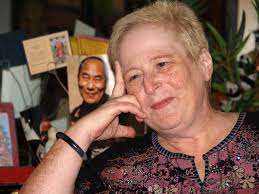I was flying to Albuquerque for a conference the other day and had the privilege of sitting next to a trio of the most amusing people I've ever met, though I can't say I thought so at the time.
The experience began with me squeezing down the plane's aisle to stop at my row which was, of course, already occupied by two people. The older man got up to let me stumble to my window seat. The woman next to him, who was probably 20 years his junior with a face stiff with botox injections, refused to move. "May I sit down, please?" I asked. I couldn't take one more Yankee attitude. She clutched an oversized Gucci handbag tighter and stared straight ahead, setting her lips. "IF YOU DON'T MOVE," I say louder as if she's old rather than mean, "I WILL SIT IN YOUR LAP."
This makes her pick her dainty toes up and swivel them to the side to rest in her husband's chair. She will not be moved.
I attempt as quickly as possible to turn on my ipod but I'm not fast enough; she immediately begins whining through her nose, "Why do we have to sit back HERE? WHY aren't we flying first class?" So now it's clear. I'm the riffraff who has put her out. The proletariat has infiltrated the ranks.
But her husband doesn't hear her because he's taken up a conversation with a woman across the aisle from him. This woman is about his age, a psychiatrist, and, judging from their conversation, has no idea that Botox is his wife, which is when things get interesting.
After the man declares to the plane that he can "surf the internet in flight any time he wants because he owns $28 billion dollars worth of stock in this company," his new friend gets interested. "Have you been to New Zealand?" she asks. "I once considered living on my friend's 20-acre golf course overlooking the ocean," he responds, "but I didn't want to leave my 4 houses here in the states." His answer doesn't matter; she's asked it so that she can tell him, "I lived a month there after my husband left me. Now I couldn't be happier."
At this point, Botox begins taking things out of the Gucci so that she can slam them into his lap. By the end of his conversation with New Zealand, makeup bags, magazines, and various sundries are piled up to his forehead. But he takes no notice.
Instead, he says, "I might as well move there. You know, for when the anarchy descends."
I cut my eyes sideways and wait for New Zealand's attempt at a girlish giggle but it doesn't come. Instead, she closes her eyes and smiles as if he's passed a test and she's proud of him. "I have a house on a mountain," she tells him. "You can only get there by helicopter." "Us too," he says. They're starting to get excited. "I have a water tank big enough to run a house for four months," she says, giddy. "And we have a house run by a generator that could power a Wal-Mart for six," he adds, more coolly than she did. "Yes," she replied, "but" -- and I'm not making this up -- "do you trust your guards?"
Now, I would've had enough of a story to tell if she'd stopped here, but she didn't. It finally dawns on New Zealand that he speaks with the plural pronoun. "Who's we?" she asked. "My wife," he replied, pointing to Botox who, by this point, has stopped breathing in her absolute fury. Her swollen lips are puffier than before; she's narrowed her eyes as if to slice holes in the back of the sticky airplane tray; her arms are crossed so tightly that her elongated, manicured nails dig into her overtanned skin. "And she's as beautiful on the inside as she is on the out."

